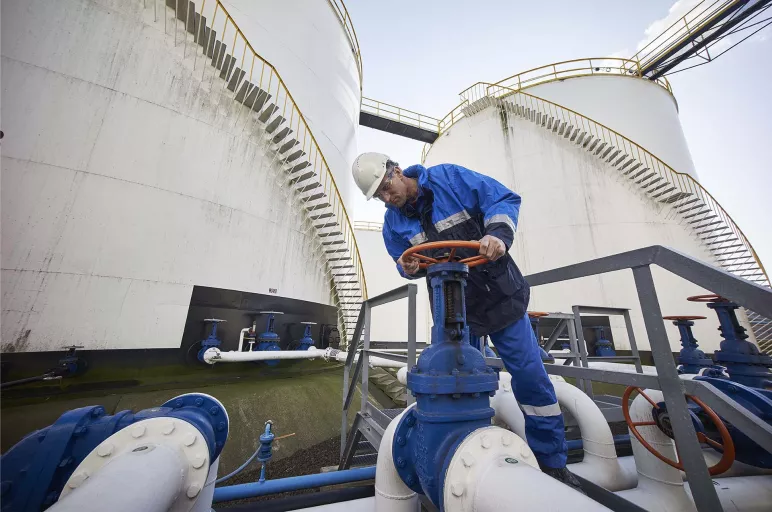
Can Sustainable Solvents Solve Chemical Industry’s Emissions Problem?
May 18, 2023 | Chemicals read
The chemical industry is one of the largest contributors to pollution and greenhouse gas emissions globally. The industry affects up to 96% of all manufactured goods and is responsible for 7% of all direct greenhouse gas emissions.
Solvents, which are substances used to dissolve or disperse other substances, are widely used in many chemical processes.
However, traditional solvents can have negative environmental and health impacts. Therefore, green or sustainable solvents are becoming popular as a way to reduce these effects.

Sustainable E-Waste Management: Why It Matters and How to Implement it
May 17, 2023 | Operations read
Rapid advancement of technology has given rise to a significant environmental challenge: electronic waste (e-waste).
Sustainable e-waste management is essential to minimize the negative environmental and human health. It reduces the impact associated with improper disposal and encourages the responsible handling and recycling of electronic devices and components. It is critical for cutting emissions and creating a brand reputation through corporate social responsibility (CSR).

Your To-Do List for Effective ESG Risk Management
May 17, 2023 | Operations read
ESG risk management has a crucial role to play in building sustainable supply chains. By effectively managing Environmental, Social and Governance (ESG) risks, businesses can proactively address sustainability challenges and create positive impacts on both the environment and society.

Supply Chain ESG Goals Can’t Be Mere Checkboxes
May 15, 2023 | Supply Chain Strategy read

What To Learn From Tesla’s Supply Chain Emissions Declarations
May 15, 2023 | Supply Chain Strategy read

How Procurement Can Support Your Business’ CSR Goals
May 02, 2023 | Procurement Strategy read
Corporate social responsibility is a business value of operating ethically and focusing on workforce well-being and the business’s carbon footprint. In the context of procurement, it is imbibing sustainable practices across the supply chain by collaborating with responsible suppliers, relying on alternative energy sources and sustainable materials and more.
How to Effectively Build a CSR Reputation
Sustainable procurement is a significant pillar of CSR. It is one of the most significant ways businesses can meet their ESG goals.

Going Beyond Cost with Sustainable Purchasing
April 28, 2023 | Procurement Strategy read
Sustainable purchasing is to the acquisition of goods and services that consider environmental, social and economic factors throughout a product’s life cycle. Sustainable purchasing is more about evaluating goods and services in a broader context rather than costs, such as:

Three Pillars of Sustainability: A Brief Guide
July 02, 2025 | Supply Chain Strategy read
The environment, the society and the economy make up the core framework for understanding sustainability. The Brundtland report in 1987 was the first to discuss these as the three pillars of sustainability.
Together, these three intertwined forms of sustainability enable businesses to take proactive, solutions-oriented approaches to complicated supply chain and procurement processes.

6 Best Practices for ESG in Supply Chain Management
April 26, 2023 | Supply Chain Strategy read
For companies seeking to improve their sustainability performance, supply chain management is a crucial area where implementing environmental, social and governance (ESG) considerations can yield significant results.
However, achieving this goal requires a multifaceted approach encompassing risk evaluation and management, clear objective setting, engagement with supplier networks and progress tracking and analysis. These goals are met mostly with the help of technology, innovation and effective stakeholder communication.

7 Ways To Optimize Supply Chains for Carbon Footprint Reduction
April 24, 2023 | Supply Chain Strategy read
The pressure on organizations to consider the environmental impact of their supply chain processes is increasing. Businesses are looking for ways to reduce their carbon emissions to comply with regulatory requirements and building a CSR reputation.
Adopting environmentally friendly measures like recycling, reducing wastage and purchasing sustainable goods is the key.
Here are some of the tips for effective carbon footprint reduction in the supply chain:
Pagination
- Previous page
- Page 11
- Next page



